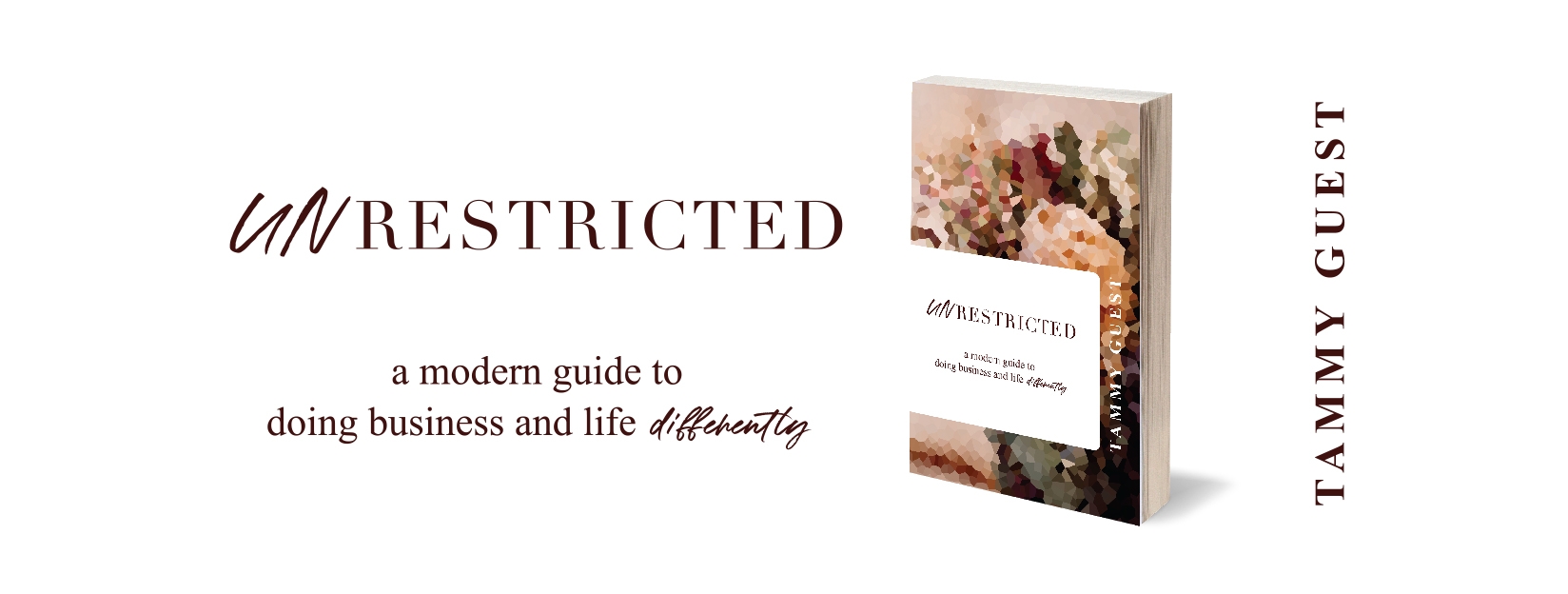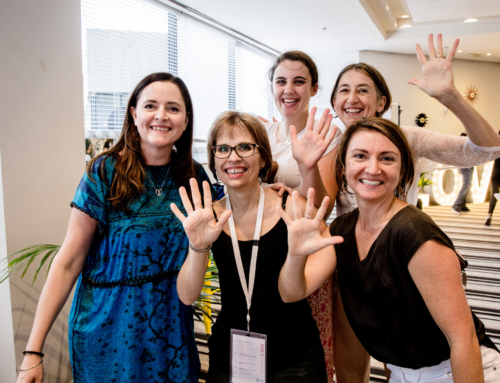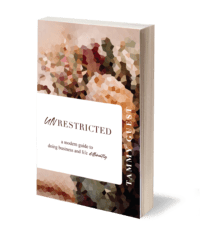Michelle Whitehead is an Australian lawyer and accredited mediator who provides creative entrepreneurs with the ultimate tools for business self-care. She believes wholeheartedly in the need for education around legal concepts, particularly for creative entrepreneurs who – when faced with paying a lawyer to bore them to death – would rather run the risk of not knowing. Today she joins me to share the biggest mistakes Natupreneurs make with their legals and how you can fix them.
Being enchanted by the fascinating challenge of reinventing traditional legal constructs for the needs of a new paradigm of business, Michelle bases them on principles of connection and caring rather than fear and avoidance. She:
- creates contracts that care,
- demystifies intellectual property,
- advises on setting brave boundaries,
- handles conflict with empathy, and
- provides risk management with a woo-woo twist.
She is also an unschooler who can’t resist any story that begins “once upon a time.”
Introducing Michelle Whitehead
T: Hey everybody! Welcome to another episode of the Natupreneur Movement. Today, I am pumped to have somebody who is not only knowledgeable in their head but incredibly knowledgeable in their heart and happens to have the absolute gift, talent, and experience in legals that we practitioners need.
Michelle will be joining us at NatEx 2020 for the second year in a row because she has such a knack for describing all the things that we need as practitioners and making sense of something that seems quite nonsensical to us so that we can be covered legally as business owners.
Hey, Michelle!
M: Hello Tammy. I am so thrilled to be coming to NatEx again this year. It was such an amazing experience last year. I love your community so much, it’s a delight to be working with them.
Story Is Better Than Jargon
T: Oh, we love having you along as well! Some of the feedback that we got last year was that it’s just the way that you describe things. You were describing risks as dragons and its fears and things like that. It was such a breath of fresh air to be able to understand that. Rather than the minefield that we get online about downloading this, that, or the other filled with legal jargon.
M: If it’s dull and boring and scary then I don’t want to do anything with it, so I don’t know why anyone else would either. So I always try to make it as colourful and as poetic as possible. Using metaphor and jumping into the realm of curiosity and imagination is where the real transformation happens. And that’s where it stops being something that you just have to have because big brother told you to and becomes stepping into taking ownership of your business, taking responsibility for best practice, and caring for your clients in the best possible manner that you can.
T: I love that! So, before we get into it, many people might not have heard of you. Although we have so many in the Natupreneur community who have taken advantage of your services. Can you tell us how you got into the legal profession? Because your story, the curiosity, and the way that you talk about the hero’s journey and taking care of people really isn’t what we think of as the traditional model of a lawyer. How did you get into it?
How Imagination Led Her to The Law
M: Well, it started when I was a kid. I always told everyone that I was going to grow up to be a writer. But to tell the truth, I never had the ‘bum in the seat’ sort of stick-to-itiveness of churning out words a day. I loved the imagination and the thinking about writing, but I never actually did the writing. An, so many adults in my life at that time told me, “You can’t make a living as an author.”
So I started out doing my honours English degree. I had the marks in that first year, so I transferred into law. I’d done mock trial at high school and thought I was pretty good at that, so I’ll give this a go as well.
How Law = Stories
At that base, when you dig really down to it, law is all about stories. Every court case is a story. More than one story, actually! There’s this side’s story and that side’s story and the other side’s story and the judge’s story. Then there’s how they interact to create a resolution that everybody can live with and resolve problems. It’s all storytelling at its heart. So I figured it was a good place for me to step into.
Then over the years, I started to have babies and I wanted to homeschool my babies. So I took a position in a small country law firm. I was six months pregnant when I came and asked them to give me a job. They were nice enough to say yes. Basically, I ended up being the person in the firm who would deal with the things that nobody else wanted to do.
They were all criminal lawyers and family lawyers. So that pretty much when I got all of the business law, all of the contracts, and all of the consumer law stuff. Anything that had boxes and boxes of documents that nobody wanted to know about. All of that became my job. And I stayed there until I was having my third child.
When The Law Lost Its Shine
I was getting disillusioned with the legal system because nobody ever won when you went to court to sort out a problem. And I was certain there had to be a better way. About the same time, I discovered the whole alternative dispute resolution mediation, and the potential of it, particularly for online in Australia. So I went back and did a Masters of Law, majoring in alternative dispute resolution.
As soon as I finished that, I had a little ethical conflict with the firm I was working with. We disagreed that what they wanted to do was best practice. That was my lightbulb moment that it was time to go out on my own. I was going to quit the law, become a mediator, be a channel of peace, and solve everybody’s problems so they didn’t have to go to court.
Discovering An Alternative Business World
Once I’d done that, I realised I had absolutely no idea how to market my own business. So I came on to Facebook and I joined a couple of female Facebook business groups. And I discovered that there was an entire business world out there dedicated to a new paradigm, a new way of doing business. It was based in connection and they cared for their clients. They were all about personal development and spiritual integration and authenticity.
And I was like, “You people are amazing! But you are not growing as fast as you can because you don’t feel safe because you don’t have contracts. You don’t have solid legal foundations in place. And you don’t understand how to manage your risk and intellectual property and all of that.”
Finding Her Niche
So I suddenly thought, I can forgive myself for becoming a lawyer and step into being the lawyer I really want to be because these people need me. That’s pretty much how I got to where I am. I needed some way to reduce the requirements of my business on my time because I was spending lot of time drafting. contracts (and still am). Creating one size fits all templates, which so many lawyers have, wasn’t what I want to do. I wanted something different.
So I created my Contracts That Care DIY Packs that can be tailor-made to fit businesses as unique and diverse as:
- tarot card readers
- nutritionists
- naturopaths
- spiritual healers
- Reiki therapists
- kinesiologists
Everybody who didn’t get into a box became my client.
T: I love that! That is amazing. To be able to notice and pick up on the signs and having that Aha moment right there and then of conflict yourself in the way that law was being done and the way that you could truly serve. Oh my goodness, I’m so glad you had that sliding doors moment, as well.
M: Me too, me too.
The Biggest Mistakes Natupreneurs Make With Their Legals
T: So, having served so many of our community, what do you find when it comes to the Natupreneurs and all of us who don’t fit into a box that you’ve helped. . . What are some of the obvious things that we tend to miss? Obvious things for a lawyer? What are some of the biggest mistakes Natupreneurs make with their legals?
M: There is kind of a mind flip involved. That is moving from the perception that your legals are something you have because you have to have them so you can just grab them from anywhere.
Your Legals Shouldn’t Be An “Alien Appendage” On Your Business
Here’s the metaphor I use when you have just grabbed legals that:
- you haven’t had any involvement in their creation
- aren’t aligned with your business
- you don’t know what they say
- even if you paid for them to be created
- you don’t feel 100% aligned with those documents
Then they kind of hang off the side of your business like some alien appendage flapping in the wind. They are there because you’ve got to have them but it feels really icky. And you really wish that you hadn’t had anything to do with them. They don’t increase your feeling of safety.
T: For the energetic folks, that actually makes a lot of sense. Having something hanging there limply. That’s not the kind of flow connected energy we’re looking for.
M: No, not at all. You know, I’ve had people come and ask me to revise legals that are like that. They get a bit offended with me if I say, “Well, it might be better to just start again because you feel no connection to this document. It would take me longer to insert connection into it than it would for us to create it from the heart.”
Legals Should Come From the Heart Of Your Business
That’s where I come from. Legals should come from the heart of your business. They should be written in the love language that your clients deserve and expect from you. And they should function not as barbed wire fences or red tape, which is what so many traditional legal documents have fallen into being.
Instead, create contracts and legal documents as sacred containers that set the boundaries and hold the space for the relationship that you want to have with your client to flourish. So that you can focus on doing the best practice knowing that both of you feel held and supported and protected.
T: Oh, that is so good. I totally get the vibe of that. I was in there thinking, a hug with boundaries. A sacred agreement, I love that. Wow.
The Difference Between Website Legals And Your Agreements
M: The other confusion that I find from people, particularly from your community, is that there’s a difference between the function of your website legals and the function of your contracts and agreements.
Website Legals Are Like A Billboard
So your website legals function more as like a billboard. They’re sort of standing up there as a notification to anyone who might stumble across your site, that this is the reason you’re providing the content you provide. And there’s a disclaimer on there that relates specifically to your content. It’s basically there in case anyone reads one of your blog posts or watches a video and thinks, “Oh, she knows exactly what she’s talking about. I’m going to do exactly what she says.”
But it’s actually generic, generalised information. It’s not tailor-made specifically for that person. You haven’t had a consultation with them, you don’t understand all the risks. Therefore, there’s a greater responsibility on them to take care for their own safety, conduct their own research, and make a really informed decision before they act on the information that you shared.
Your website legals also put out there your policies such as refund, missed appointments, booking, and all of those sorts of things. So that people who are thinking about working with you can do their due diligence. They can have a look and see if they’re comfortable and build trust in what’s going to happen before they pay their money to you. And your website legals also protect your intellectual property. So they basically say that the information that you’re providing and sharing is provided to be consumed and shared but not to commercialise. Not to try and make money off of, to steal from you, or any of that sort of thing.
Protecting Client Information
T: A question from me personally. Does it also have the bit where if somebody is interacting with your website, that they know what’s happening to that information?
M: That comes into your privacy policy, generally. Your privacy policy on your website will generally cover both the information that you collect through your website and the information you collect from clients. It’s just so that, again, people who are thinking about working with you have got that information publicly available before they even have to reach out to you. It’s there on your website, they can read through it and know that, yes, this is a trustworthy person, this is someone I want to work with who will respect my confidentiality.
In your privacy policy, you’re going to distinguish between the personally identifying data, which is things like their name, email address, and that sort of contact information that you might collect when they sign up to your newsletter. And then the sensitive data. The sensitive data there is the stuff that you would collect in your intake form or in a session with someone. Which is where they share information they wouldn’t share to anybody outside of that relationship of trust.
So telling them in advance that you take protecting that information seriously, and that you’ve put thought into how you’re going to manage it, is really important.
Client Service Agreements
T: You were saying that there’s a difference between your website policy and did you say terms?
M: Your client service agreement? That’s right. So those are your website legals and they’re publicly available.
Your client service agreement is for when you’re working one on one with a single person or in a small group. When they’ve crossed that threshold from being interested in consuming your free content to wanting to pay you to work with you. In that case, you generally want to have some kind of contract involved.
As soon as you offer something for sale in any way and they accept that offer by paying you or booking in, then you have a contract. Regardless of whether it’s written down or not, the contract exists.
So legally speaking, the best thing to do is to actually codify those terms in some way. Whether it’s at the lowest level, which is just taking those important policies that you’ve already displayed in your website legals and putting them in a welcome email or as a tick the box before they buy so that they know those important policies, those important boundaries before or at the time they buy from you. Or whether it goes all the way up to a really comprehensive thorough healer agreement which sets out everything, every aspect of how you’re going to work together.
Three Factors That Decide The Type of Agreement You Need
Which level of that kind of contract you need depends on three factors.
Factor #1: Time or Money Invested
The first factor is the amount of time or money that people are investing with you. Because the more time they’re spending with you, like over a period of weeks or months, the more money they’re investing with you, the more important it is to manage their expectations. To really help them get clear on what they’re getting, how they know they’re getting what they paid for.
Factor #2: Degree of Risk
So the more chances that someone could suffer some kind of harm or loss or damage from working with you, whether that’s because you’re working with particularly high-risk groups, like children, pregnant women, the elderly, or the immune-deficient, all of those sorts of things. Or if there’s just an inherent risk in your services.
T: Or it’s a different model that you’re using like on a retreat or something a bit out of the ordinary.
M: Exactly. All of those areas. It’s really important to pin down those details so that you can manage your liability. By managing liability, I don’t mean saying, “None of this is my fault. Anything that goes wrong is down to you. You can’t blame me for anything.”
What I mean is setting the boundaries between the scope of your duty of care, where you promise to do your best by your client and you’re responsible. Between that and where the client is responsible for their own safety and they have to take care. You’re not going to fix them, they have to do the work. They have obligations and responsibilities as well. Setting those boundaries out really clearly is essential.
Factor #3: Comfort Level
Then the third factor is how comfortable you feel. I’ve talked to practitioners who’ve been flying naked for 30 years, perfect safety, never had a worry. I’ve also talked to practitioners who are scared to call in their first client unless they’ve got a full suit of armour and a tank around them.
There’s nothing wrong with either of those areas. The reason I get to see those people who’ve been flying naked is because something changes in their practise or their business and they suddenly don’t feel safe anymore. They feel exposed. So they start to realise they need a bit more protection. They start to move into feeling uncomfortable and that they need to sort their foundations out. They need to put in place some of these boundaries in writing so that they and their clients can both really feel safe.
Clarity Is Kindness
T: The quote from Brene Brown comes to my mind that Clarity is Kindness. The whole notion of just being really clear about what:
- you’re doing
- you expect of your clients
- they need to expect of you
And just getting clear on your duty of care.
Remember Your Duty Of Care
I mean, these are questions that are really good to just start mulling over as a practitioner anyway. Because having a team of collaborators and that duty of care such as:
- I work with these particular practitioners in these areas
- and these are the kinds of situations where I would refer
These are really great questions to ask yourself but then to be even clearer and put it down on paper. Then having an agreement in place is really kind. It makes it simple for everybody to get on the same page.
Learning More About Your Own Business By Developing Legals
M: Yeah, absolutely. That’s why I love the healer agreement that I created for you guys. Because so many practitioners who’ve done it have come back to me and said, they learnt so much about their business from just answering those questions.
So rather than me spitting out just a precedent with a few words changed to make it yours. You’ve actually delved deep into what:
- does best practice mean to you?
- are you actually offering?
- is the relationship you want to build with your clients?
Really going deep into the detail of what that actually looks like, step by step.
Every Business Is Unique
T: Yeah. Because we are so unique, we take it for granted when we work by ourselves as practitioners, that everybody practices the same way as us. But we are so diverse not only in the modalities that we use but out the way in which we practice and model of business. You know, some of us are online, some are off. Some of us work at particular times or only work with particular conditions. There are so many unique factors to it. No wonder we do need to do this work to really find out and dive deep. The legals have to be unique to us.
M: It also comes to energetically and your brand voice. For example, when someone signs up for one of my VIP services where I’m writing the document for them, we spend the time and talk through all the questions. I ask them all and we work through it together. But I cannot write the document for them until I have branded it in their colours, their fonts, and added in their logo. And I have to read a bit of their website so that their brand voice comes through. Because if it doesn’t come through in the same language that you use for your marketing, the same language you talk to your clients with, then it just feels really off. It doesn’t speak to clients in the way that they need you to speak to them.
T: And it doesn’t create that trust. The legal jargon creates a level of distrust from the beginning.
M: And that sense of consistency in everything that you do.
Love Your Work, Love Your Life, Love Yourself
T: So the theme of NatEx this year is ‘Love Your Work, Love Your Life, Love Yourself’.
I can hear all of the things you love about your work. What is it that you weave in from your work that you love about your life and yourself that moves you forward and continuing to be in business and to help as people who sit outside the box?
M: I love connecting with you guys. That’s what probably the thing that keeps me going the most. Getting the chance to talk to you and see how unique and amazing your businesses are. And also to bring that calm, that sense of peace and calm. When I left to become a mediator, it was all about bringing that channel of peace, which has been my goal since I was very little.
To bring that calm, that peace, that clarity into your businesses is just my favourite thing to do. It’s what I love to do.
And also love that I have a business where I can homeschool my kids. My kids can wander in and out and I can also be accepting of that with my clients, too. I don’t have to worry. So many lawyers and offices I’ve seen kids being shoved out the door and told to wait on the stairwell or whatever else. Really holistically integrating every aspect of our lives into our businesses is an amazing luxury. And I feel very blessed to be able to do that.
T: Oh my goodness! So many nuggets in our conversations. Michelle! I am so excited to have you at NatEx again this year.
You’re also going to be there on the VIP day for people in the evening. I can’t wait to hang out and have all sorts of chats. We can’t wait to hear you presenting up on stage again. If anyone was going to start out trying to find a little bit more about what they need in their practice, where is the best place to look?
Where To Connect With Michelle
M: There’s lots of information on my website, which is MichelleWhitehead.com.au. I also have a very busy Facebook page. I basically have divided the year up into quarters. So in first quarter I’ll be talking about all things intellectual property.
T: I’ve been loving your intellectual property posts!
M: Awesome! That’s great to hear. In the second quarter, I’ll be talking all about contracts and boundaries. Then in the third quarter, I’ll be talking about risk and really build the dragons and castle stuff. And then in the fourth quarter, I’m going to be talking about communication, clarity, and calm and really building those foundations. That whole best practice and the serenity that comes from living in best practice.
T: Thank you so so much for being part of our community, Michelle. We can’t wait to see you at NatEx!
Take Action
Michelle shared so much great information for us today! If you found this useful today or know someone else who needs to hear it, please share it!
And now it’s time for you to take action! Have you really looked into your legals to make sure they are right for your business? Do you need to talk to someone like Michelle to refine your agreements, or do you even have any legals in place?
Take this as your sign from the universe that it’s time to put this at the top of your to-do list and get your legals sorted. Join us in the Hub to let us know your takeaways from this interview and where your legals stand! Let’s all learn and progress together.









Leave A Comment